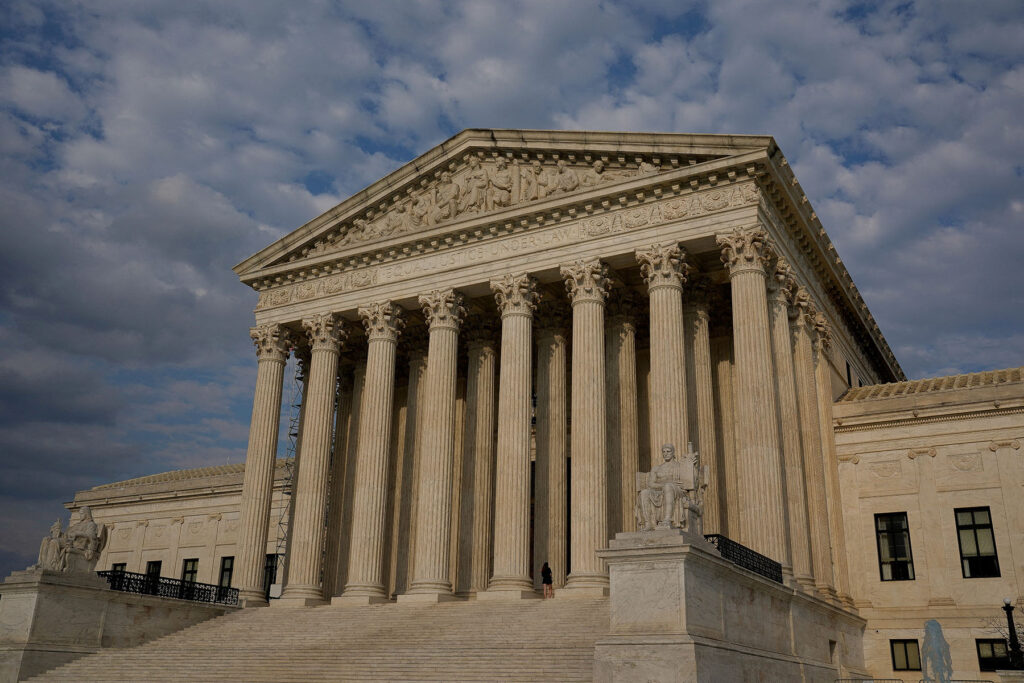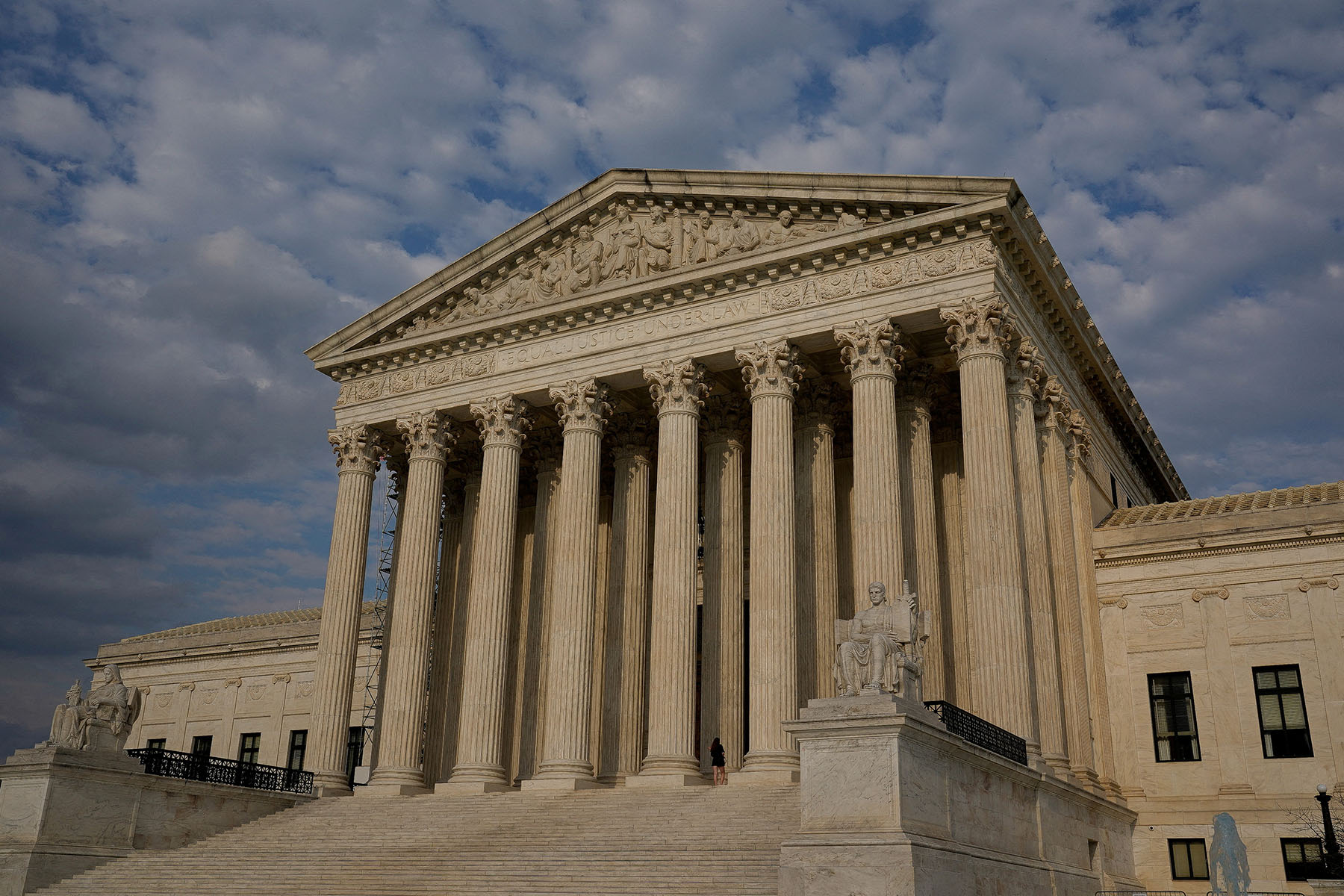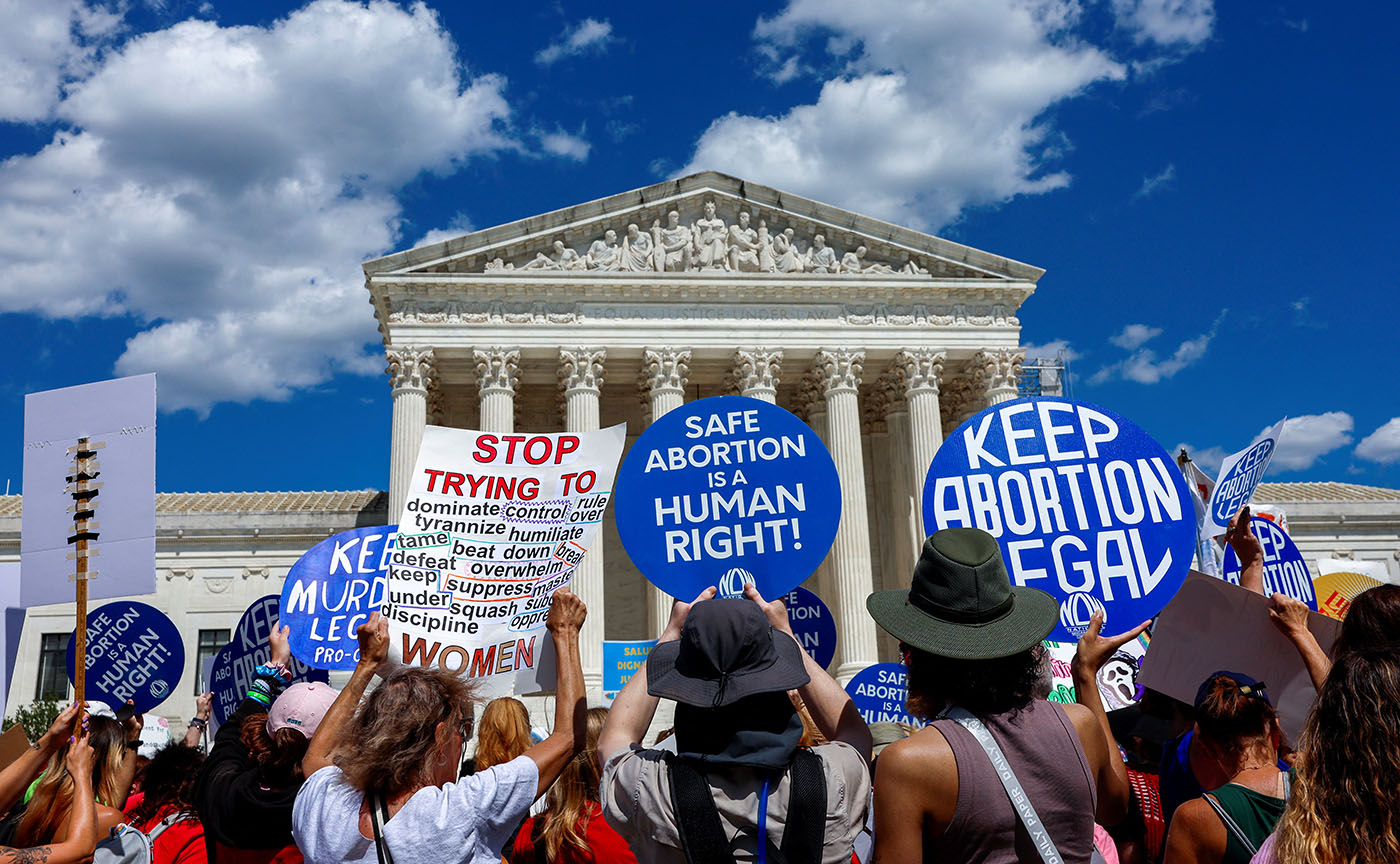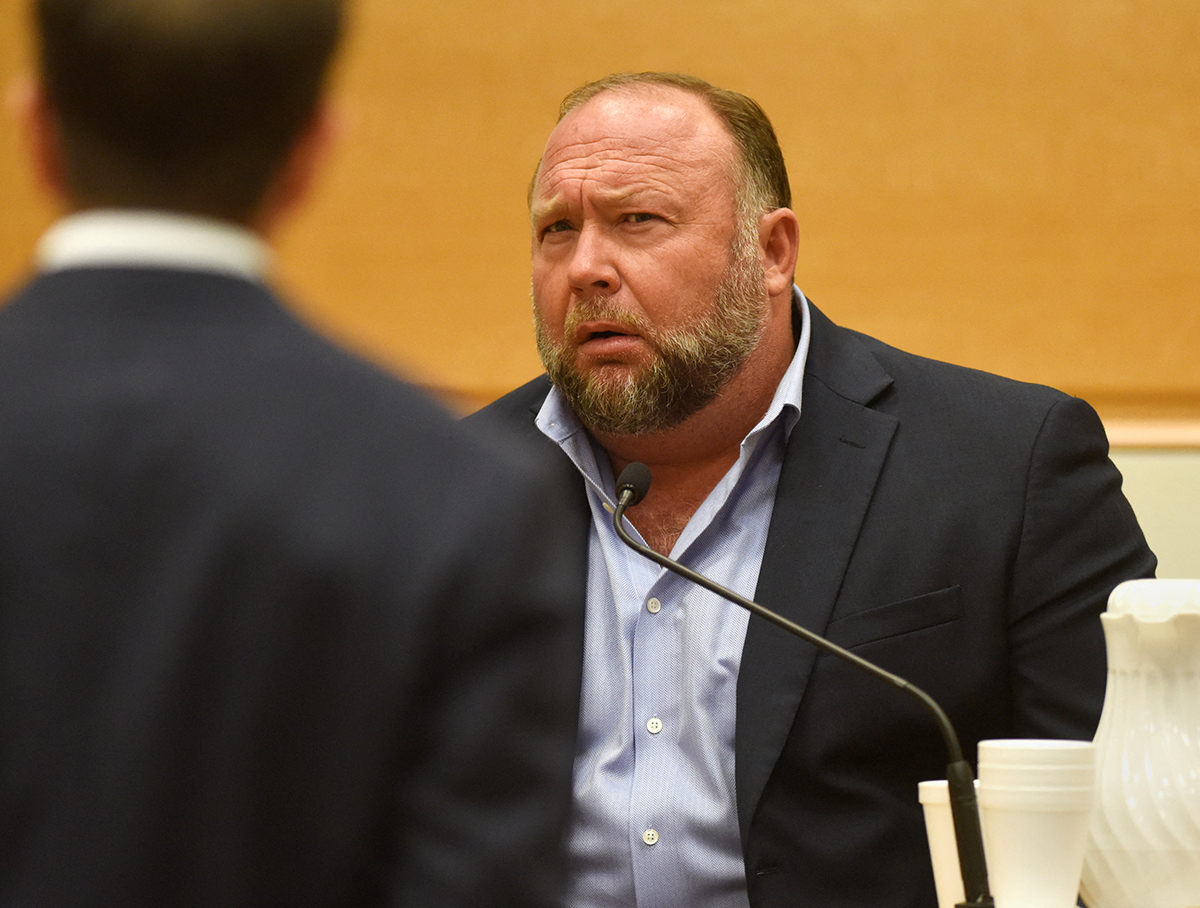The Supreme Court ruled June 23 that a federal law which criminalizes the encouragement of illegal immigration does not infringe on free speech rights.
In United States v. Hansen, the court considered whether the “encouragement provision” of a federal immigration law that criminalizes speech which “encourages” or “induces” illegal immigration was unconstitutionally overbroad. Justice Amy Coney Barrett, who wrote for the 7-2 majority, stated that because the statute “forbids only the purposeful solicitation and facilitation of specific acts known to violate federal law, the clause is not unconstitutionally overbroad.” For a law to be overbroad, it’s written so that it regulates both protected and unprotected speech.
The law’s use of “encourages or induces” sparked concern from several justices during oral arguments in March. The justices questioned the statute’s use of the words and how the typical definitions may sweep up protected speech. But Justice Barrett noted that the statute uses the words in a “specialized, criminal-law sense” and they are not synonymous with their widely used definitions.
Previous: Key Takeaways of Supreme Court Oral Arguments in United States v. Hansen
The question before the court was a result of the actions of California resident Helaman Hansen, who from October 2012 to January 2016 encouraged noncitizens to immigrate to the United States for a substantial fee and the promise of citizenship. Hansen profited nearly $2 million from this “adult adoption” scheme, in which he convinced those seeking citizenship that an American citizen could adopt them. In 2017, he was sentenced to 20 years in prison on several charges, including two counts of “encouraging unlawful immigration.”
Hansen appealed his conviction and sentence to the U.S. Court of Appeals for the Ninth Circuit. In February 2022, the Ninth Circuit affirmed all of the charges except for the two counts of “encouraging unlawful immigration,” in which the panel held that the statute’s clause is overbroad and unconstitutional. The U.S. Department of Justice petitioned the Supreme Court for review, which was granted in December 2022.
Justice Barrett wrote that even if one were to assume that the statute “reaches some protected speech, and even assuming that its application to all of that speech is unconstitutional, the ratio of unlawful-to-lawful application is not lopsided enough to justify facial invalidation for overbreadth.”
Justice Ketanji Brown Jackson wrote a dissenting opinion, joined by Justice Sonia Sotomayor, in which she argued that the law should have been struck down for First Amendment violations. She added examples to portray how the law could impact certain speech if “encourage” and “induce” were typically defined.
“It would also apply to the doctor who informs a noncitizen patient that a necessary medical treatment is more readily available in the United States, influencing the patient to stay beyond the expiration of his visa to await treatment,” Justice Jackson wrote. “The college counselor who advises an undocumented student that she can obtain a private scholarship to attend college in the United States, inspiring the student to reside here, would also fall within the scope of the statute.”
Justice Jackson voiced concern that protected speech would be suppressed as a result of the court’s decision.
“Ordinary people confronted with the encouragement provision, for instance, will only see its broad, speech-chilling language,” she wrote. “Even if they do consult this court’s decision, and do recognize that it substantially narrows the statute’s scope, the court’s decision leaves many things about future potential prosecutions up in the air.”
Hansen’s lawyer, Esha Bhandari — the deputy director of the American Civil Liberties Union’s Speech, Privacy and Technology Project — said in a statement following the court’s decision that people speaking about immigration may still stifle their speech despite the court’s narrowing of the statute’s scope.
“The Supreme Court has drastically limited the encouragement provision to apply only to intentional solicitation or facilitation of immigration law violations,” she said. “As written by Congress, the law has left people wondering what they can safely say on the subject of immigration. Now we expect the government to respect free speech rights and only enforce the law narrowly going forward.”
June 23, 2023 — United States v. Hansen opinion
Tags



